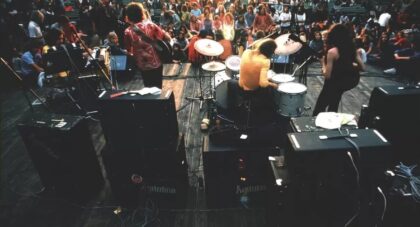For 15 years, Indiana folklorist and songwriter Joseph O’Connell has recorded records under the name Elephant Micah. His latest, and first for Western Vinyl, is called Where In Our Woods, and it’s a gorgeous, sparse record. Built on a foundation of O’Connell’s weary, slyly funny words and nylon-string acoustic guitar, there’s subtle ornamentation, too: tom drums, pump organ, an occasional harmony -- O’Connell’s friend Will “Bonnie . . .
Only the good shit. Aquarium Drunkard is powered by its patrons. Keep the servers humming and help us continue doing it by pledging your support.
To continue reading, become a member or log in.


